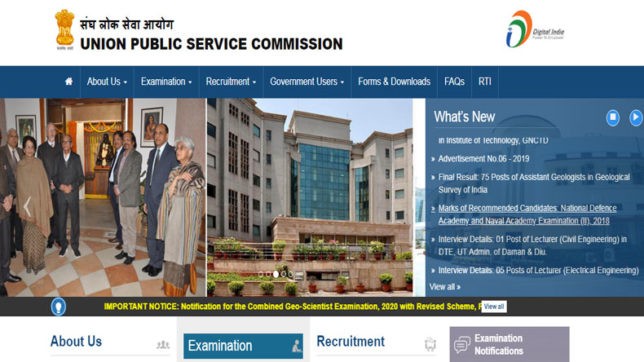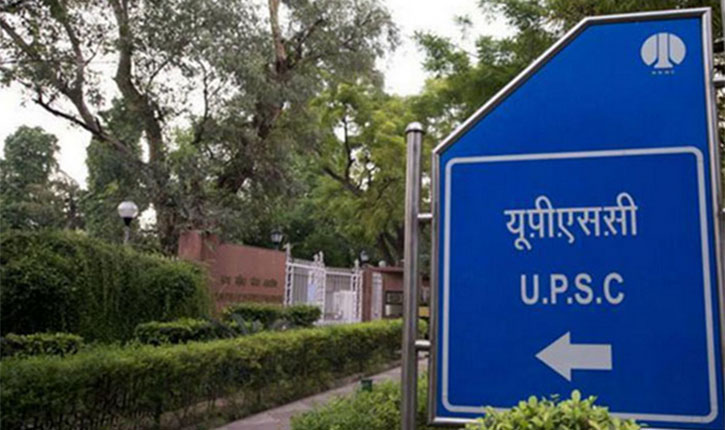Source: swarajyamag.com
UPSC aspirants are often confused about preparation of General Studies (GS) subjects. The four general studies papers in UPSC Mains cover a wide area of subjects and topics, from History to Economics and Geography to Science and Technology.
Since such broad range of topics is covered in four papers, it becomes increasingly difficult for aspirants to strategies their Mains GS preparation, balancing it with Essay and Optional Subject. There are few key points to remember when it comes to Mains preparation, and one should start from the UPSC notification itself.
In the notification, UPSC itself says that the papers will test ‘depth of understanding’ and not merely information and memory. It further states that the questions will be such that the candidates will be able to answer them without any ‘specialised study’.
It also emphasises ‘basic understanding of all relevant issues’. The stress is on ‘concise, effective and exact expression’. It also asks the candidates to present their ideas in an ‘orderly fashion’.
The takeaway from the notification are:
One doesn’t require specialised study, but deep understanding. Therefore, one shouldn’t run after several different kinds of materials and instead focus on few. NCERT, here, becomes the anchor of the preparation.
Candidates should read NCERT from class VI very carefully as they contain deep issues in simple language, exactly the way UPSC wants the answers to be. While reading NCERT, candidates should focus on how a topic is dealt with and what all information is given. Answer writing practice should go simultaneously with NCERTs.
Candidates shouldn’t feel under confident about their English speaking or writing skills. Of course, a minimum level of vocabulary, grammar and articulation is required. But that can be achieved by reading the newspapers sincerely and carefully. In any case, language skills, without substantive answers will not work in the exam.
Candidates should download a good dictionary application on their mobile phones and keep saving any new words they learn in the newspaper. These words can be once revised while walking, jogging etc.
To be able to arrange ideas and present them in an orderly fashion, candidates should start from their reading style itself. For example, after reading a topic from NCERT, the candidates should write a summary- introduction, body and conclusion by themselves, taking notice of the way the topic was arranged in the textbook.
The GS topics include both static and dynamic part (current affairs). While some subjects are heavy in the former, others are in the latter. History, Geography, Art and Culture are predominantly static subjects. They require a thorough understanding and revision of the material (your notes, NCERTs).
On the other hand, Science and Technology, Economics, International Relations, Social Issues, Urbanisation and Development etc are current-affairs heavy subjects. Reading heavy books on these subjects would not yield best results.
Instead, candidates should read NCERTs for a basic understanding and then focus on reading and compiling current affairs material in concise-orderly fashion to score well in these subjects. Click here to read about notes-making tips.
Environment and Ecology, Internal Security are two subjects which are not static-heavy, yet the issues more or less remain the same. Therefore, if one prepares these well once, revision and appending with current affairs would work well.
GS Paper 2 is a perfect blend of static and dynamic. On one hand, the candidate is required to deeply understand and (in parts) learn the constitution and polity, on the other, questions on current affairs dominate the paper.
Last but not the least, Mains preparation cannot occur without consistent answer-writing practice. Reading without practising answer-writing will not get you good marks. In case there is shortage of time, after reading a topic, at least making a flow chart in head about the answer is necessary.
The candidates should always remember that UPSC doesn’t require ‘specialised knowledge’. Therefore, however surprising a question might be, they shouldn’t feel intimidated. To twist a famous saying, a candidate can never know what he knows unless he starts writing the answer.
So, never be afraid of a question. Read it carefully. Try to locate it in the syllabus very quickly. This will open some doors for you. Make bullet points of what all you want to cover in the answer and start writing. All that remains is monitoring your speed, time and word limit, which will improve with practice.



